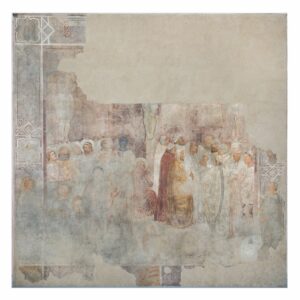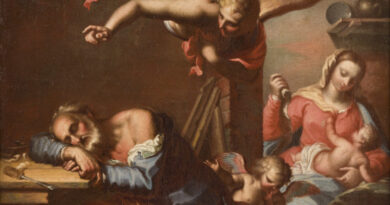Twenty-fourth Sunday of Ordinary Time/B
Massimo Palombella

In today’s Gospel (Mk 8:27-35), Jesus questions his disciples about his identity. Starting with a generic question (‘People, who do you say that I am?’), Jesus immediately challenges his disciples by asking them for a ‘personal’ answer (‘But you, who do you say that I am?’).
The question addressed to the disciples is profoundly addressed to each one of us, because the relationship with the Lord, if it is authentic, alive, truly ‘human’ demands – like any true human relationship – a personal response, which existentially involves our life. It may happen in our existence that at a certain point the relational modalities with the Lord (modalities we have learnt from an education received, from living in a specific culture, from the positive examples we have seen) no longer work, are no longer adequate to the man, the woman we find ourselves to be.
But, the true relationship with the Lord does not keep us children, it does not prevent or hinder our maturation, it does not demand that certain areas of our life not live. Institutions can do this to sterilely preserve themselves, but not the Lord, not the true God.
The true relationship with the Lord challenges us, puts us healthily in crisis, breaks our little patterns, leads us to live in fullness. Only in this perspective can we understand and metabolise suffering, pain, ‘taking up one’s cross’, ‘losing one’s life’.
The living and true relationship with the Lord broadens our humanity and slowly leads us to ‘think according to God’, which is always an inclusive thinking, of great visions, broad horizons and infinite mercy.
The Communion antiphon for today’s celebration is taken from Chapter XVI of Matthew’s Gospel (Mt 16:24) with the following text:
“Qui vult venire post me, abneget semetipsum et tollat crucem suam, et sequatur me.”
(If a man wishes to come after me, let him deny himself and take up his cross and follow me).
The attached music, in Gregorian Chant, is taken from the Gradual Triplex published in Solesmes in 1979. The interpretation is by the “Coro Gregoriano De Lisboa” conducted by Maria Helena Pires de Matos. The musical track can be found on the CD ‘Liturgias De Santos Europeus Do 1º Milénio’ published by Universal Music Portugal, S.A. in 2005.
A blessed Sunday and heartfelt greetings.


